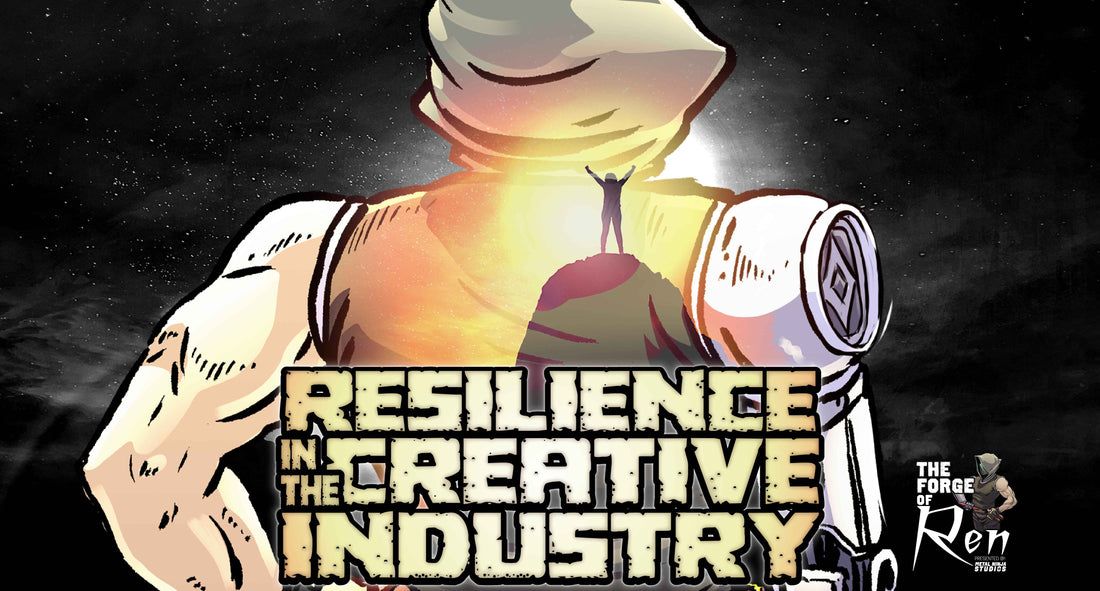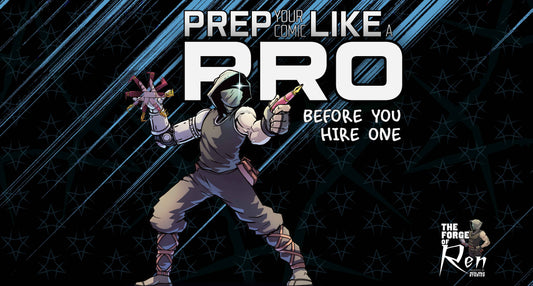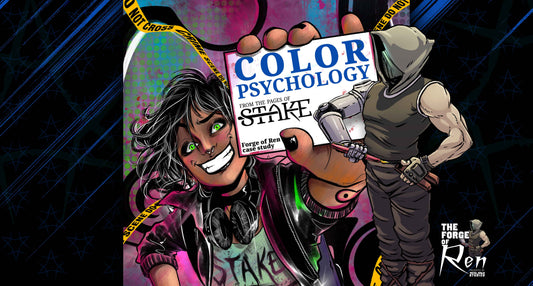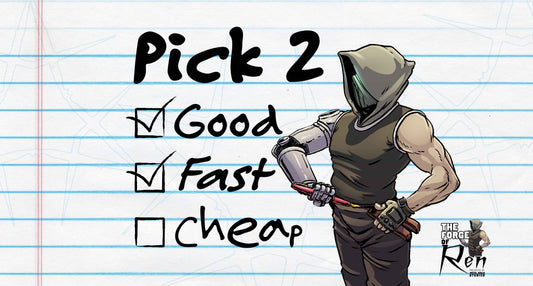Introduction
The creative world—particularly comics—is a high-stakes environment where constant companions are rejection, criticism, and the pressure to innovate. These challenges, while daunting, are not insurmountable. Resilience is the key to navigating this terrain, helping you learn, grow, and thrive. This guide provides actionable tips to help you cultivate resilience, turn obstacles into opportunities, and build a stronger foundation for your creative career.
1- Understand and Embrace Rejection and Criticism
Rejection and criticism are inevitable, but they don't have to define your worth as a creator. With the right perspective, they can become some of your most powerful tools for growth.
Take it from personal experience: my comic career began with rejection. I wrote a 5-page horror-parody short story for an anthology submission, only to face the most dreaded form of rejection—radio silence. No feedback, no explanation—just nothing. While it stung, I chose not to take it personally or let it derail me.
Instead, I reimagined that story, transforming it into what eventually became The Dusk County Chronicles. That decision sparked a chain reaction, leading to the creation of Metal Ninja Studios. This full-service comic production studio now helps bring hundreds of comics to life every year.

This experience taught me that rejection doesn't have to be the end; it can be the beginning of something transformative. To navigate rejection effectively, remember this: separate your personal worth from professional feedback, and be selective about whose opinions you let guide you. Only accept input from those who've either achieved what you're aiming for or successfully helped others do so. These are the voices that can offer valuable, actionable insights.
Lastly, maintain a feedback journal. Write down the critiques you receive, reflect on them, and use them to track your growth. Over time, you'll see how even the toughest feedback has shaped your success. Rejection isn't the enemy—it's an opportunity in disguise.
2 - Cultivate a Growth Mindset and Adaptability
In the ever-evolving creative industry, adaptability and a growth mindset are indispensable. Challenges, failures, and setbacks are not the end of the road; they're stepping stones toward success. A growth mindset allows you to see these hurdles as learning and evolution opportunities.
As Alex Hormozi emphasizes, while money comes and goes, the skills you cultivate and the knowledge you acquire are assets that no one can take away. This principle is so crucial that it forms the foundation of one of Metal Ninja Studios' core values: 1% better – daily. Staying updated on trends and technological advances is important, but chasing trends can leave you feeling perpetually behind. Instead, focus on how you can innovate within your unique creative voice. Replace self-doubt with constructive affirmations, reminding yourself that each failure brings you closer to mastery. Experimentation is the heart of growth—trying a new artistic medium or exploring uncharted storytelling styles. Embrace failure as a natural part of progress and let adaptability guide you to unimagined possibilities.
“The skills you cultivate and the knowledge you acquire are assets that no one can take away.” - Alex Hormozi
3 - Build a Strong Support Network
Creativity is often seen as a solitary endeavor, but no one succeeds in isolation. A robust support network can make the difference between burnout and breakthrough. Surround yourself with people who share your goals and values—whether they're fellow creatives, mentors, or industry professionals. These individuals provide a sounding board for your ideas, share their experiences, and help you stay motivated.
Online forums, local workshops, and creative meetups are excellent places to connect with others who understand your journey. Mentors, in particular, can offer invaluable insights, guiding you through challenges with the wisdom of experience. Regular check-ins with your support network create opportunities for collaboration, feedback, and encouragement. Remember, resilience doesn't mean going alone; it means knowing when to lean on others.
4 - Prioritize Personal Growth
Resilience thrives when you are in your best physical and mental condition. Creativity demands clarity of mind and a healthy body. While it is possible to create while unwell, it's the equivalent of fighting with your hands behind your back. Even Stephen King, the literary powerhouse, wrote great novels from dark places while under the influence of intense drugs. However, your mind is a powerful tool, and like any other tool, it operates at its best when properly fueled and cared for. Regular exercise strengthens your body and sharpens your focus, while mindfulness reduces stress and helps you maintain emotional equilibrium. Adequate rest recharges your body and mind, preparing you to tackle creative challenges head-on.
Setting boundaries is equally important. Overcommitting to projects or neglecting personal time can quickly drain your energy. Instead, strive to push yourself toward your peak condition. Build routines that include fitness, mental exercises, and habits that promote long-term health. A strong mind and body fuel the energy and focus necessary for innovation and growth in your creative endeavors.
5 - Find Your "Why"
Purpose is the foundation of resilience. When you're clear about your "why"—the reason you create—you're better equipped to weather tough times. Reflect on what drives you. Is it a passion for storytelling? A desire to inspire others? A need to express yourself? Whatever it is, let that purpose anchor you.
Simon Sinek's "Find Your Why" philosophy emphasizes that understanding your mission helps align your decisions with your values. Crafting a personal mission statement is a powerful way to clarify your goals and stay focused. When challenges arise, revisit your "why" to remind yourself why you started this journey in the first place. Purpose provides direction and infuses your work with meaning and motivation.
Conclusion
Resilience is not about avoiding challenges but turning them into opportunities for growth. You can thrive in even the most competitive creative industries by learning to embrace rejection and criticism, cultivating a growth mindset, building a strong support network, striving for peak physical and mental conditions, and anchoring yourself in your purpose.
Now it's your turn: What steps are you taking to build resilience in your creative journey? Share your experiences and insights in the comments, and let's inspire each other to keep pushing forward.





